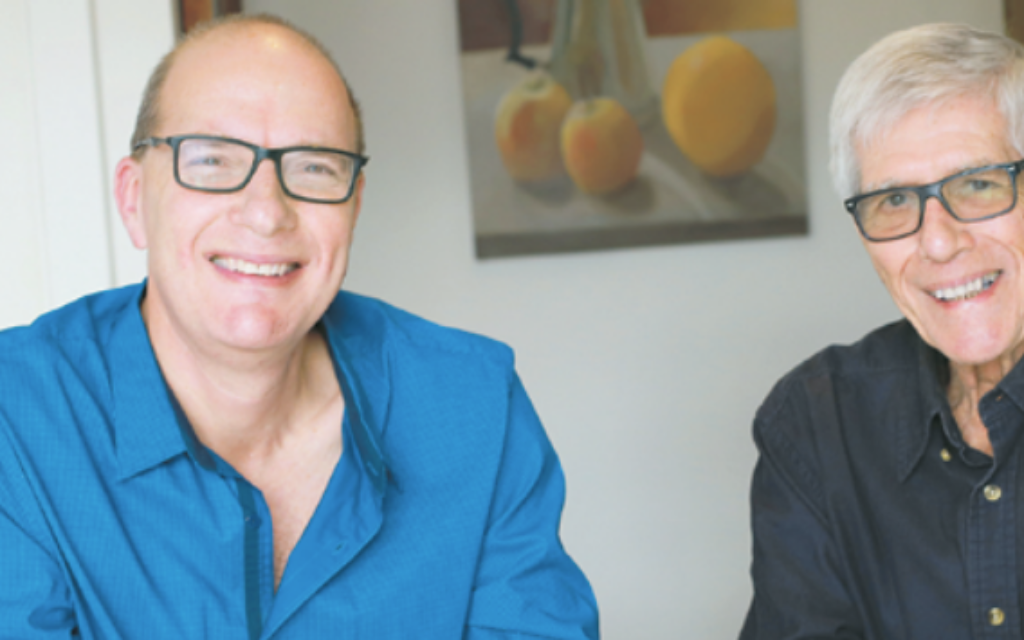Survivor story with a happy ending
The story of how a Polish Jewish boy, who was five when World War II began, survived the Holocaust and started a new life in Israel and Australia, is told in a new book by his son Ron Pila. Danny Gocs reports.
Josh Pila was born in Poland in 1934 into a loving Jewish family. Five years later, when Germany invaded his homeland and World War II erupted, it signalled the start of his battle for survival.
Only about 10 per cent of Polish Jews survived the Holocaust, most of them not on Polish soil. And for Jewish children in Poland during the war, the survival rate was a fraction of one per cent.
Yet through resourcefulness beyond his years, as well as resilience, courage and luck, Josh defied the odds. The story of his survival has been written by his son Ron in the new book, Under a Lucky Star.
Blessed with a photographic memory, Josh, who is now 86 and living in Melbourne, spent hundreds of hours over a five-year period telling Ron about his wartime experiences, growing up in Israel where he served in the IDF, settling in Australia in 1957 aged 23 and becoming a successful architect and businessman.
“Writing the book was an incredibly enjoyable project, not least because of all the time we spent together, which brought us even closer,” Ron told The AJN.
“We met for a few hours every week over five years as there was no urgency – it was prior to the COVID19 lockdown.”
The result is a 200-page memoir published by Real Film & Publishing.
“My Dad has an interesting Holocaust story and also lived in interesting historical places in Europe and Israel,” explained Ron. “I wanted to write Dad’s story for future generations.”
Three days after Germany invaded Poland on September 1, 1939 the Nazi army marched into the town of Sosnowiec where Josh lived with his parents, Solomon and Bronia, and his older brother Menashe, 8.
Solomon ran a smallgoods business which was allowed to remain open when other Jewish shops were shut down because the Nazis classified it as essential.
In September 1941 the family welcomed a baby girl, Rachel, which provided a rare occasion for celebration. In 1942 all Jews were forced into the crowded Srodula ghetto, just outside Sosnowiec.
By mid-1943 the ghetto was closed to the outside world, a barbed wire fence patrolled by guards and the Pila family decided to try to escape.
Their plan succeeded, thanks to the courage and maturity showed by nine-year-old Josh, who escaped to a nearby town where he was taken in by a Catholic dairy shop owner.
After several weeks, when his mother and sister had not joined him, Josh returned to the ghetto. After being reunited with his family, the responsibility fell on Josh to escape the ghetto again and lead his mother and brother to the safety of the dairy shop.
In 2016, Ron and his parents, Josh and Mary, travelled to Poland and visited the towns where the family had lived – places that once had thriving Jewish communities but today are devoid of Jews.
They located the grave of Josh’s sister Rachel – who survived the war but died of tuberculosis in July 1945, aged almost four – in the Jewish cemetery in Katowitz.
The tombstone was laying on the ground and hidden in long grass. After cleaning and erecting it, they recited Kaddish.
“That was a very emotional moment and we were overwhelmed with sadness,” said Ron.
“There had been an emotional build up around the whole visit to Poland and that’s when it hit us.”
In the book Ron noted: “The Holocaust is almost incomprehensibly immense in scale, but this was our little corner, a focal point for our thoughts and feelings.”
They travelled to Sosnowiec where their family home had been, but today a petrol station is on the site.
“We visited the apartment block where his mother had grown up, next door to where the Great Synagogue had been, and the block was still there, looking very run-down. We didn’t go in, just stood in the courtyard and took some photos,” said Ron.
“Many Holocaust survivors refuse to return to Poland. We were glad to have visited Poland and not sorry to leave.”
In the book he writes: “The country is part of your heritage, but not your home. It’s a land soaked in Jewish blood.”
About 25 years ago Josh recorded a video testimony for the USC Shoah Foundation.
“When I suggested writing the book, Dad was very happy with the idea,” said Ron.
“My father was not as traumatised as many Holocaust survivors, partly because he was a child at the time, partly that going to Israel was like a decompression chamber, and partly his personality where he was able to compartmentalise and could talk about it without getting overly emotional.
“While he has every reason to be cynical, he is always positive, convinced that things will turn out for the best.”
He said Josh’s mother Bronia, who survived with him and lived until she was 98, was very traumatised by her wartime experience.
“It was on her mind every day until she passed away.”
Ron graduated with degrees in law and science from Melbourne University and worked as a commercial lawyer. For 26 years until 2014 – when he turned 50 – he worked with leading law firm Minter Ellison, including 16 years as a partner, specialising in technology contracts.
He left the firm to do his own consulting work, spend more time with his wife Jackie and their four children, and to write Under a Lucky Star.
Under a Lucky Star is available from all major retailers and online.
Get The AJN Newsletter by email and never miss our top stories Free Sign Up


comments